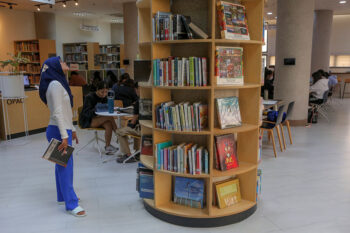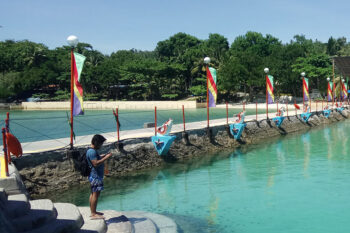ZAMBOANGA CITY (MindaNews / 05 May) – The Moros came from a society where leadership, by and large, is inherited based on blood. Blue-bloodedness is the basis for leadership. A candidate had to be royal from both branches of his family, whose ancestors have been rulers and even his mother have to be of royal birth. I use the masculine pronoun “his” because leadership back then was largely patrilineal.
There are about three classes of nobility under the Sulu Sultan, from which all traditional leaders emerged –
(1) Karatuan – The karatuan are descended from the first Sultan and are fiefs in their own domain. They sport the titles ‘datu’ for male and ‘dayang-dayang’ for female. Descendants of a datu maintain the same titles. However, for descendants of ‘dayang-dayang’, they need to have a royal husband to retain the titles for their children. Children of a commoner father lose the right to inherit their mother’s title, and instead are entitled to lesser ones like ‘tuan’ (sir) and ‘sitti’ (lady).
(2) Kasalipan or Ashraf – The kasalipan trace their ancestry to the Prophet’s Banu Hashim family. Descendants are known by the colloquial title ‘salip’ for both male and female. However, these days, the Arabic forms ‘sharif’ for male and ‘sharifa’ for female are preferred. The sharifas need to have a royal husband to retain the titles for their children. Sharifas married to commoners lose the right to inherit their title, and instead entitled to lesser ones.
(3) Kaburanunan – This class of nobility claims descent to older pre-Islamic ancestry that once ruled the Sulu Archipelago. The Chinese Ming Shi-Lu (Annals) documented three polities – Eastern, Western and ‘Dong’ (Chinese word for natives) – whose rulers were titled as ‘Paduka Batara’, ‘Maharajah’ and ‘Paduka Prabu’, respectively. Unlike their Karatuan and Kasalipan kins, members of this noble class sport no title at all. According to ‘salsila’ (oral literature), they are recognizable through their physiques – short in stature, curly hair and darker skin.
Together, the karatuan, kasalipan and kaburanunan form the “Junjungan Majilis”, sort of a royal assembly upon which the incoming sultan make his pledge to rule justly and according to law and tradition. In turn, the ruling class affirms their loyalty.
Since leadership is patrilineal, imagine the pressures faced by Sitti Kabira (Grand Lady) to overcome and assert herself on the throne as Pangiyan (Queen) Ampay. In the hierarchy of traditional leadership, the top is capped by the Sultan, followed by his royal cabinet (kamantirian), mostly of noble birth themselves. Blood maybe the entry requirement, but competence still matters.
Interestingly, the title of ‘Datu Shahbandar’ or colloquially ‘Datu Sabandal’ was a powerful office in-charge of external, overseas or foreign affairs and trade. The compound word ‘shah bandar’ is accordingly Persian in origin and literally means, “the port or harbor master”. In its modern application, the Australian minister of foreign affairs and trade comes to mind.
In the Sulu Archipelago, there are the civil and religious functionaries directly appointed by the Sulu. Among the former are the likes of the Panglima (vice royal or civil governor) scattered throughout the realm. The position is based on competence to enforce royal edicts in and to unify the assigned locality to be loyal to the ruler. Among the latter are the likes of the imam (congregational prayer leader), khatib (mosque secretary), bilal (caller of adhan) and kuntum (in-charge of physical maintenance of the mosque). They all serve at the pleasure of the ruler.
Socially, below the ruling class are the ‘free men’ and their families like the ‘orangkayas’ (people of means) who have distinguished themselves in commerce and trade or those freed by their masters from bondage. Below them are the (bonded) serfs (ipun), followers who served their masters for generations, until some of them maybe freed from servitude for extraordinary service.
Fast forward to May 2019, the traditional monarchies in Sulu, Maguindanao, Buayan and Lanao are gone institution-wise. In fact, our current Philippine constitution prohibits it stating, “no law granting a title of royalty or nobility shall be enacted” (Section 30, Article XVI). Despite this, cultural practice persists even among the literate or educated Moro population. Against this cultural backdrop is the legal imperative of a secular democracy – a system of government where the people are sovereign and the political leaders are public servants who are elected by the former to serve for specific office and tenure. This is in stark contrast with the old monarchy where the ruler is sovereign and all those below him are his servants.
This month, the campaign period is reaching its zenith and the acme of who to choose. On May 13 (Monday), voters will proceed to their respective precincts to cast their vote. From this exercise of suffrage came the colloquial word ‘pagbutu’, the act of voting or ‘pagpini’ nakura’, the act of choosing leaders.
To qualify to run for public office in the present time, residency, age and ability to read and write are the minimum qualifications. In contrast, the minimum qualifications for the sultanship are the following:
- Bangsawan – Descended from the first Sultan of Sulu.
- Ilmawan – Highly knowledgeable of the law (sara’) and tradition (adat).
- Rupawan – Morally upright, physically and mentally fit, with exemplary character and a regal personality befitting the office.
- Altawan – Have enough wealth to uphold the dignity of the office.
- Ummulan – Of legal age, age being traditionally associated with experience and wisdom.
While the act of voting for our leaders is modern, democratic and secular, many observe that most of the time the bases for our selection appears to be along the line of personality, patronage and cronyism, and in turn, complemented by the ‘spoils system’, that is, ‘to the victor goes the spoils’, and use the public coffer or resources to reward individuals or groups for their electoral support and the expectation of the loyalty in the next election. As a result, meager government resources that should have gone to funding and improving public services are squandered. In turn, corruption in public offices in its different forms, such as bribery, graft, patronage, nepotism, cronyism, embezzlement, and kickbacks, undermine good governance and public trust in government.
How do we get out of this quagmire? Much has been said about quality leadership, morality in governance and so forth. But I reckon, of the same magnitude is the need for enlightened constituency or responsible citizens who realize that the way out of this quagmire begins with each voter putting in the names of those who are up to the challenge of public service. Corollary to this is the correct exercise of our right of suffrage by voting for those with solid platforms and proven competence or those who have show ability to deliver. The voters should stop patronage politics themselves. The way to stop dynasty is every voter’s decision to elect only one from each to public office, which one is most competent of them all. Politicians are into patronage because voters are expecting grease monies. If voters stop expecting, bullion of monies will become useless papers overnight. Our situation will never change unless we the voters start changing what is in us. One election can begin the cycle of political maturity, and over time, we demonstrate to the succeeding generations what true sovereignty means. Let us begin it this May 13, 2019.
In pagbutu kapatut (To vote is a right)
In butuhun subay patut. (Therefore, vote correctly)
Mahalga’ in kapatutan (Rights are invaluable)
Subay siya halgaan. (Therefore, it should be valued)
Patumtum sin Tuhan (God reminds)
Di’ da mapinda in kahalan (Our condition will not change)
Bang di maupiksa’ in pangatayan. (Unless we change what is in us)
Tagnaan ha baran (Start with one’s self)
Huling bata’ ayaran. (Value our children)
Mini’ na kita sin kaadilan (Let us choose justice)
Hikapalahil in kasambuhan. (To advance progress)
(MindaViews is the opinion section of MindaNews. Noor Saada is a Tausug of mixed ancestry – born in Jolo, Sulu, grew up in Tawi-tawi, studied in Zamboanga and worked in Davao, Makati and Cotabato. He is a development worker and peace advocate, former Assistant Regional Secretary of the Department of Education in the Autonomous Region in Muslim Mindanao, currently working as an independent consultant and is a member of an insider-mediation group that aims to promote intra-Moro dialogue).







